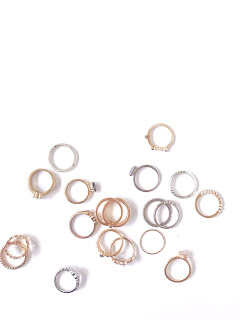Missing Our Gatekeepers Yet?
We now live in a world that doesn’t distinguish between experts, morons and conspiracy theorists.
 |
| The building that housed my former paper for more than 100 years. |
We used to have a better system, and I was a part of it. And though it was messy and imperfect, it worked well enough. I was a journalist with a 30-year newspaper career that ended in a wave of layoffs in 2015.
Take letters to the editor. My policy, as a small-town newspaper editor, was to run every letter possible and clean it up to meet normal publication standards. Even the ones that started off, “You are a moran!” I would correct the grammatical and spelling errors so at least I was being insulted according to AP style. But one day, somebody brought in a letter about chemtrails. It was crazy wackadoodle stuff, and I didn’t print it. Another time, a woman wanted me to print a letter full of provably false claims. I told her I’d be glad to print her letter if she corrected the errors. I didn’t object to her assertion that the founders had sought to establish a Christian nation, even though I don’t agree with
it. I did object to her using quotes from others (some made a hundred years after the revolution!) and attributing them to the founders. Instead of taking my advice to do more research and correct the factual errors, she wrote a letter to every church in town, warning them that I was an evil person.
Another time, we had a mayoral candidate who was fond of making completely erroneous claims. One example: He insisted he would perform better maintenance on our city’s main drag. The reporter knew that, at that time, it was a state route and the city had no jurisdiction. She pointed that out to him. He doubled down.
She came back from that interview confused. What could we do? The candidate was insisting he would do things as mayor that the mayor had no power to do, and even after being informed of the facts, he wouldn’t back down. We had a long discussion about how we could let the candidate have his say but still keep voters informed. We settled on a system of putting in the facts parenthetically. From that time forward, each time the candidate made a crazy claim, we’d let him make it, but we would include the correct information, along with whatever attribution or citation was appropriate. It went something like this: “As mayor, I’ll impose world peace!” (Editor’s note: The mayor does not have jurisdiction over world peace.)
The guy was still elected and did a lot of damage before he was ultimately removed from office for using the city credit card on the local gambling boat.
Who is in charge of Truth? It used to be a collective effort of journalists, educators, decent leaders and informed citizens who played their part by speaking up at public meetings or writing letters to the editor. It was imperfect, but it worked.
We have laid off most of our journalists. We still have coverage of national events, but less coverage of state and regional news. As for local news, well, to even discuss it makes me cry. Nobody is covering most smaller towns in any meaningful way. Worse, there’s been a right-wing effort to brand every journalist as biased and fake, and to present truly biased news organizations established solely to advance a particular point of view as the only trustworthy ones. Journalists have faced this mass of distrust just as they’ve also either been given the jobs of half a dozen people to do or have lost their jobs entirely. It hasn’t gone well.
Nobody wants to pay for a subscription and support traditional journalism when you can listen to entertaining conspiracy theorists who will feed your existing biases in a comforting way for free.
Ideally, we could depend on the marketplace of ideas, in which every idea was out there and we could trust a thoughtful, well-educated populace to sort through things and make their own decisions. I used to believe that was possible. But it was pure fantasy. It turns out that people who seem like normal, average folks have no idea how to evaluate claims.
I have observed many elections. I’ve been in the room when ballots are counted. I have planned and overseen coverage of elections. I’m not an expert, but I know the claims that the process is corrupt is false; this is a case of ordinary people who had no idea how this worked suddenly paying attention and being encouraged to jump to conclusions by untrustworthy forces. You can’t explain the facts to angry people, because you need to preface it with long explanations of background they don’t have and aren’t interested in, and they think you’re just lying.
I have attended dozens of inquests. I have overseen coverage of death investigations. I’m not an expert, but I understand what goes into the process of determining the manner and cause of death. Yet now, all of a sudden, we have thousands of people who have never given a thought to the process that goes into this suddenly paying attention and being encouraged to jump to conclusions by untrustworthy forces.
I could go on and on about the societal and governmental processes that, as a former journalist, I have solid familiarity with but the average citizen does not. Why should they have? That was not their job. But now, all the real journalists are either gone or thoroughly distrusted.
And so we need to figure out new gatekeepers. Journalists were ideal. There were many of us and we were scattered all over the whole country. Some of us were wealthy celebrity anchors and some of us (this would be me) were paid low wages to cover small towns. Some of us were liberal and some of us were conservative. You don’t believe that last one, I know. You’ve been told all journalists are liberal. How many newsrooms have you worked in? How many journalists do you know personally? I’m telling you, there are journalists of every political persuasion. But we did our best to be aware of our biases and to work around them — and when somebody fell short of that, the others in the newsroom who did not share that bias would speak up. The system worked pretty well. But now it is gone.
You can’t put the government in charge of gatekeeping. Hopefully I don’t need to explain why, but I will. That is like putting the lunatics in charge of the asylum, or the criminals in charge of the jail. Not a good idea.
Big Tech has very recently begun some tentative gatekeeping. I cheered when Twitter began to stop allowing Trump to spew shit. I was dumbfounded when the TV cameras cut away from Trump and announced he was giving fraudulent information. But it was too little too late. If the national media had stood up to Trump’s efforts to manipulate the truth five years ago, we’d be living in a different country today. If Big Tech had been responsible, same. But the national media and Big Tech people are mostly unaccountable to the public. You could write a letter to the editors of little papers like mine or our big-city counterparts, protesting our coverage of a certain issue was unfair, and we would print it. If you disagree with the stance Big Tech takes, OK, whatever. And right now, I’m cheering Trump’s lies being dealt with. But there is absolutely no reason to trust that Big Tech will always make the right calls and will always be on the right side. Sure, I want the Qanon foolishness stopped, too. But I am not at all sure we’re doing this right.
Social media platforms, although they function as town squares, are privately held companies. Go back and read the First Amendment, if you need to. I assure you, nowhere does it obligate any media to allow you to use their platform to have your say. Trusting Big Tech to be the gatekeeper of the future could lead to a dystopian nightmare that would scare George Orwell right out of his grave.
You might think the social media influencers would step up, but there is a world of difference between people who are interested in getting attention for themselves and those who are interested in exposing truth. Juicy conspiracy theories bring thundering herds of eager sheep to one’s platform. Long explanations of how things actually work? Hard to build a following with that brand. (I should know.)
I know! We could establish an education system that teaches kids to think! Then they wouldn’t be sucked in by every opportunistic conspiracy theorist’s rantings! And while we’re at it, let’s invent broccoli that tastes like chocolate.
This is where I’m supposed to suggest a fix that we should all work toward. But I don’t have one. I’ve spent the last 15 years watching the traditional media die and trying to imagine what would take our place. You can’t establish a centralized authority because that invites corruption. It cannot be the government. It cannot be the church. It cannot be Big Tech. It cannot be left up to individuals, because we’ve had a taste of what happens there, and it damn near finished us off. You need an entity that is not centrally controlled or operating under one particular entity’s control. You want just about anybody to be eligible to join the club, but not as a loose cannon; there should be standards and accountability imposed by peers.
We had a system that had worked pretty well for hundreds of years. Journalists, despite what you’ve been encouraged to believe, were for the most part dedicated to their craft and cared passionately about being seen as fair and responsible, and that mostly kept us honest. If you’re thinking of the top few celebrity anchors, stop. Think about the shabbily dressed guy who was at every city council meeting with his little notebook. Think about the woman without TV hair who took pictures at your town’s annual festival and who wrote about every new store opening in your small town. Think about the recent journalism grads who were sent to the “cop shop” every morning to see if there were any good arrests made overnight. Think about the lady who used to accept the flyer for your church fish fry and promise to put it in the community calendar. These were the people who really safeguarded democracy. They held each other accountable. Most of them are gone now, and most of you reading this have no understanding of just how important they were, and just how in trouble our world is without them.
Now we’re back to more like what we had when illiterate peasants had to trust that the church and state would never steer them wrong, or that the strongman who controlled their little patch of earth was benevolent and truthful.
That worked splendidly, as you recall.


Comments
Post a Comment